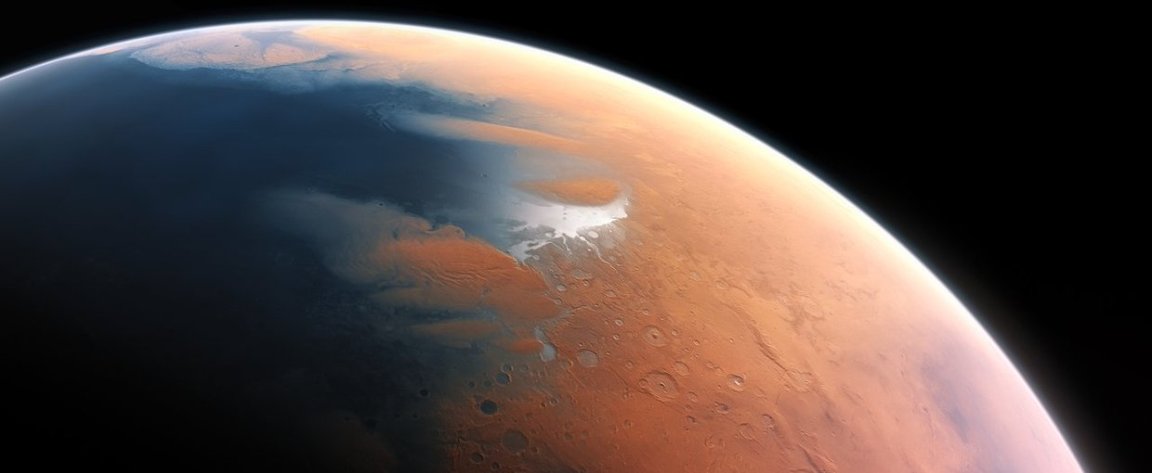
Water on Mars
The dry, dusty landscape of Mars didn’t always look that way. The barren, red canyons of the planet were perhaps once a temperate terrain where water flowed freely. But, while we do not yet fully understand how Mars transitioned from a warm, wet planet to what we know today, new evidence in the form of research published in the journal Nature suggests that the water once present on the surface is now trapped within Martian rocks.
Previously, researchers suggested that this water was lost as a result of the collapse of Mars’ electromagnetic field. They have theorized that it could have been carried away by solar winds or solidified in ice below the surface. But neither of these concepts explain why there is no water to be found on the red planet.
Researchers at Oxford’s Department of Earth Sciences think that the water and the surface of the planet reacted together and the rocks on the surface absorbed the water. This would not only rid the planet of water but it would increase the rocks’ oxidation as well, which would make the planet uninhabitable.

The research team, led by Dr. Jon Wade, a NERC Research Fellow in Oxford’s Department of Earth Sciences, came to this conclusion using modeling methods that helped them first to understand the composition of Earth rocks. This allowed them to calculate the amount of water that could be pulled from Mars’ surface through reactions with rocks. This process allowed the team to determine the part that rock temperature, sub-surface pressure and general Martian make-up play on the surface of Mars.
Martian Rocks
The research team found, after their analysis, that basalt rocks, in particular, on the surface of Mars can hold about 25 percent more water than typical Earth rocks. They used this information to find that the Martian rocks absorbed the water that was once on the surface.
According to Wade, “people have thought about this question for a long time, but never tested the theory of the water being absorbed as a result of simple rock reactions.” There are pockets of evidence that together, he said, lead us to believe that a different reaction is needed to oxidize the Martian mantle. “For instance, Martian meteorites are chemically reduced compared to the surface rocks, and compositionally look very different. One reason for this, and why Mars lost all of its water, could be in its mineralogy.”
Wade continued, “On Mars, water reacting with the freshly erupted lava that form its basaltic crust, resulted in a sponge-like effect. The planet’s water then reacted with the rocks to form a variety of water bearing minerals.” The water-rock reaction altered the rock mineralogy and caused the planetary surface to dry and become inhospitable to life.

So does this mean that life never existed and could never exist on Mars? Not exactly. Researchers are still debating and exploring the possibility that life once existed on the Red Planet. And, while this reaction supposedly makes the planet inhospitable, humans are still capable of and planning on potentially colonizing Mars.
Additionally, this new finding could help us better understand exoplanets that suspect to have the potential to hold life. As we have found with Mars, just because you don’t see rivers flowing, it doesn’t mean that water is absent.